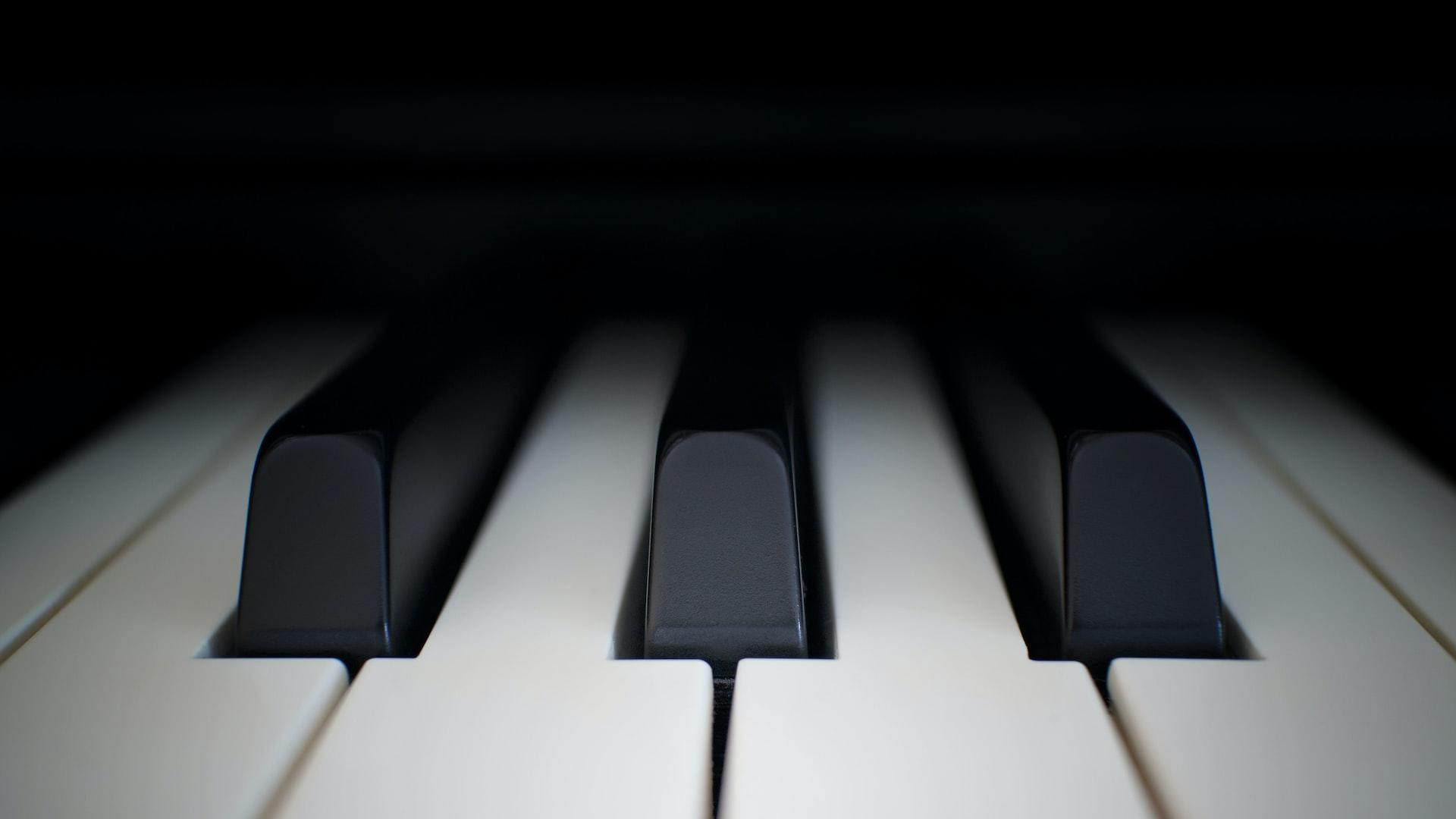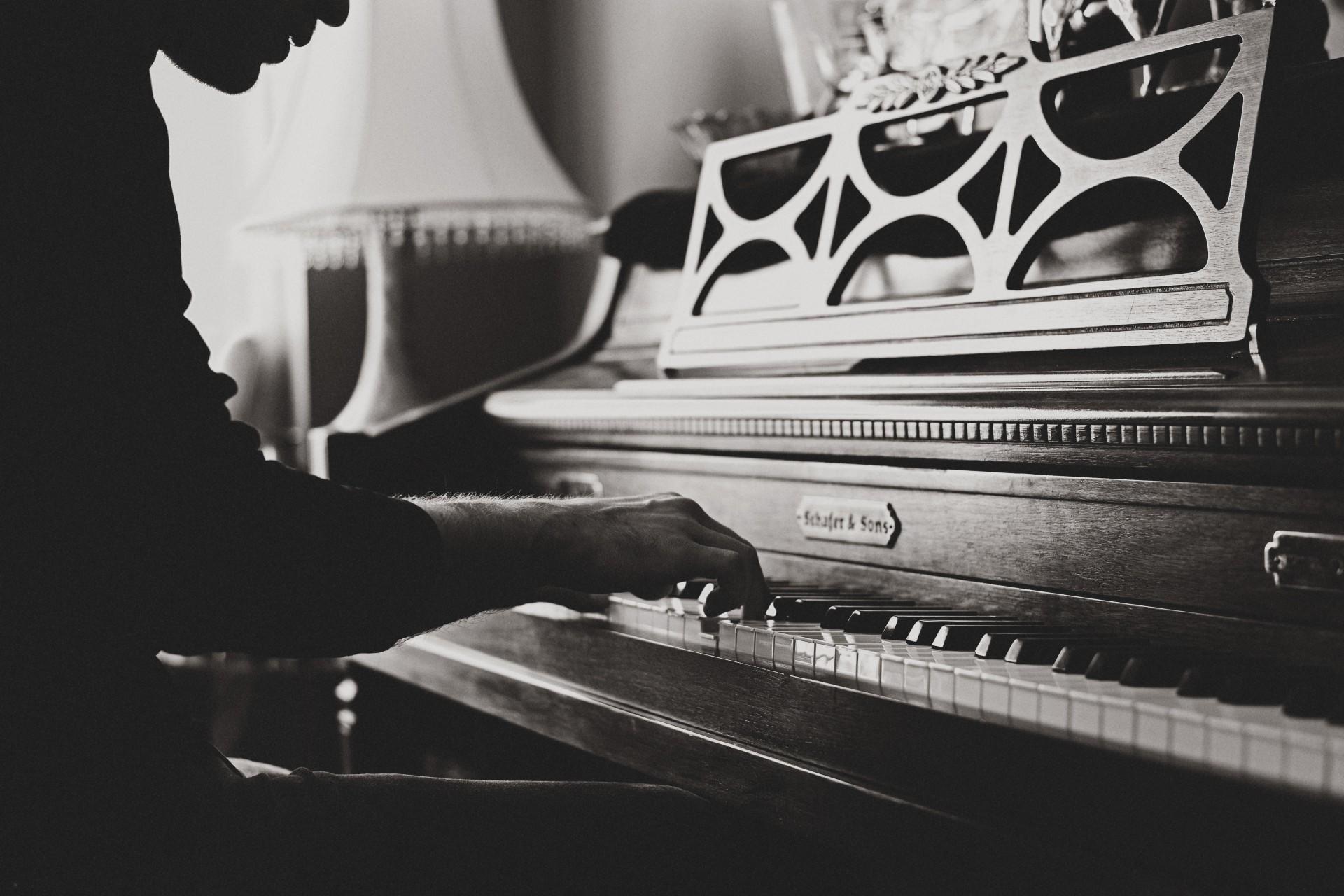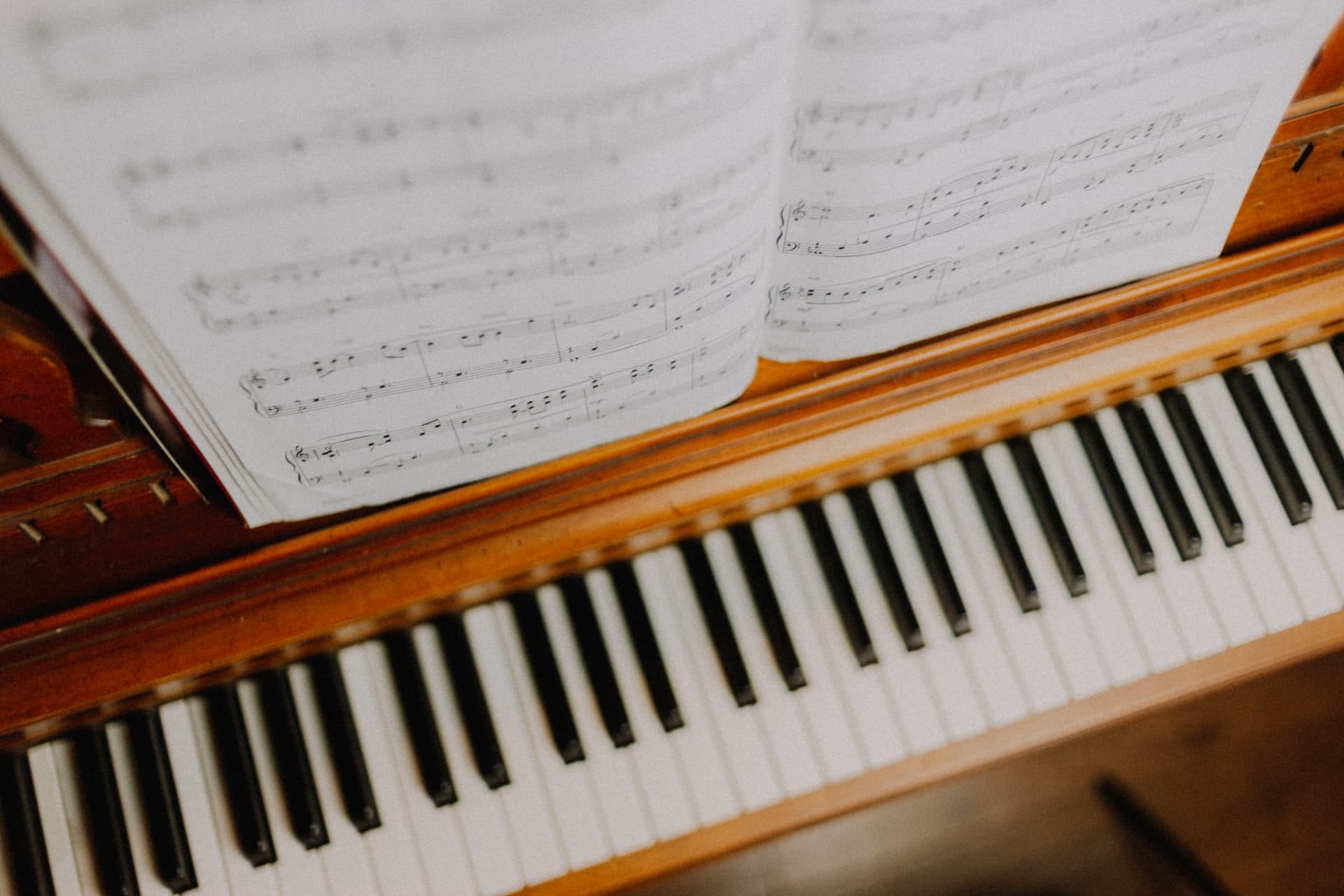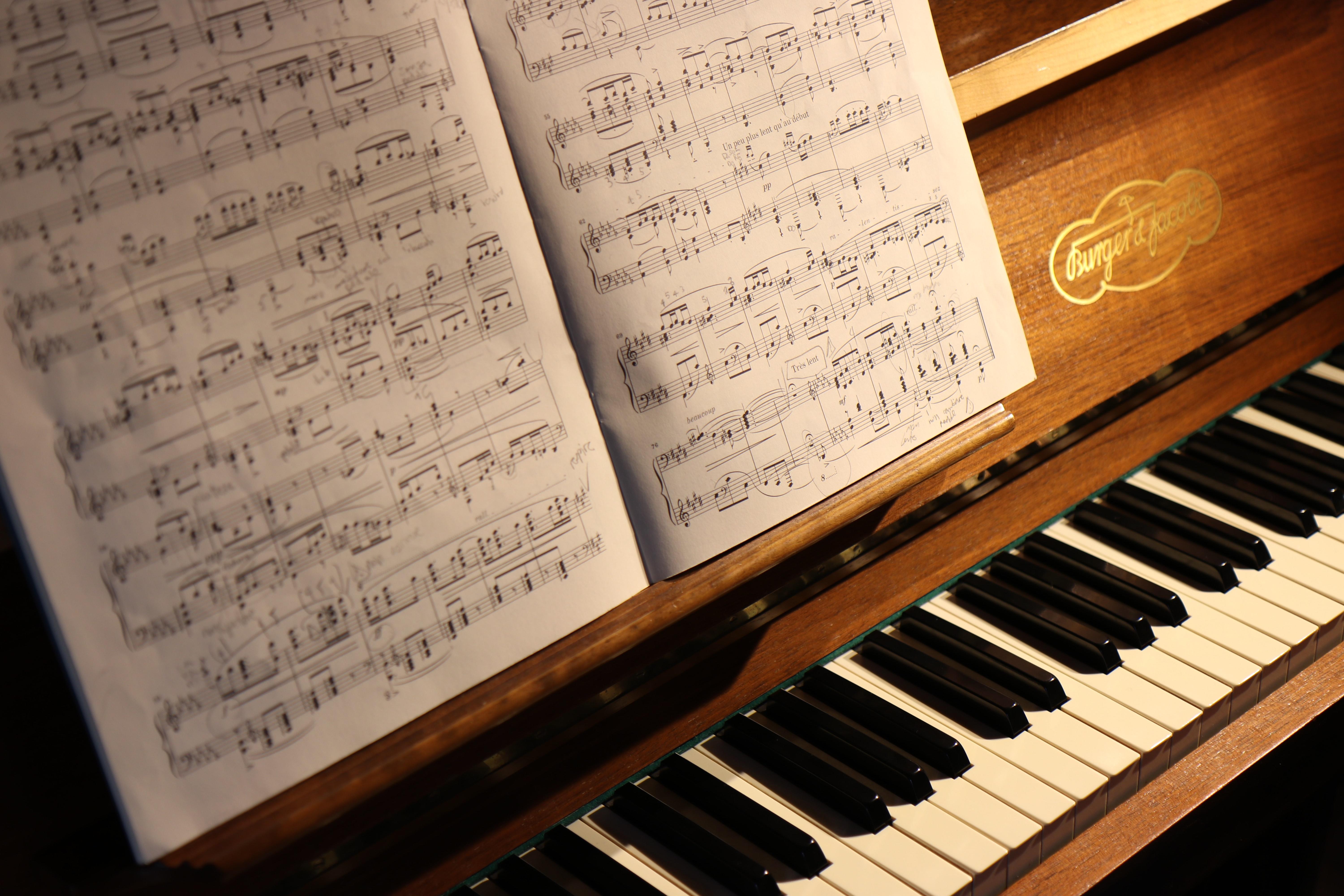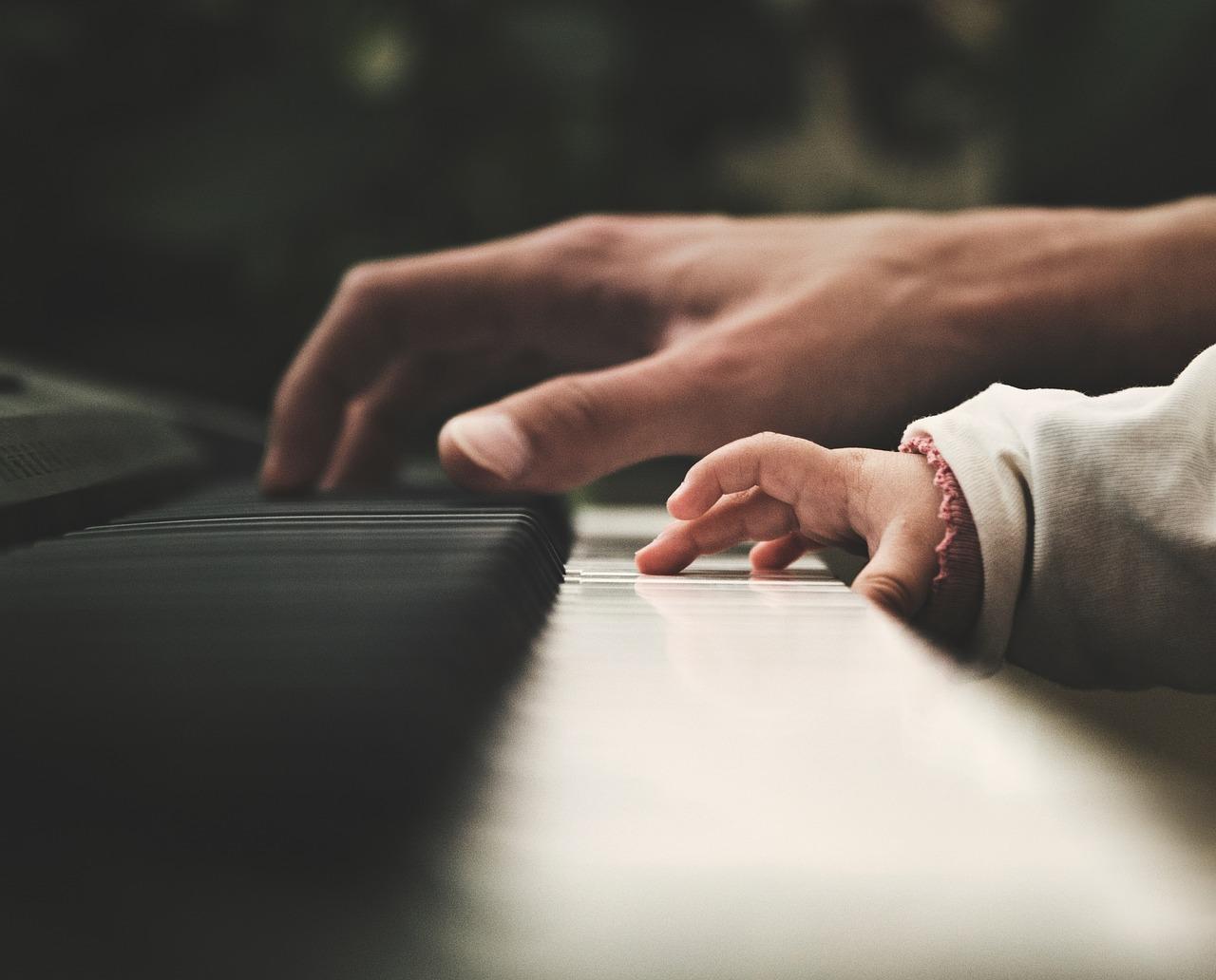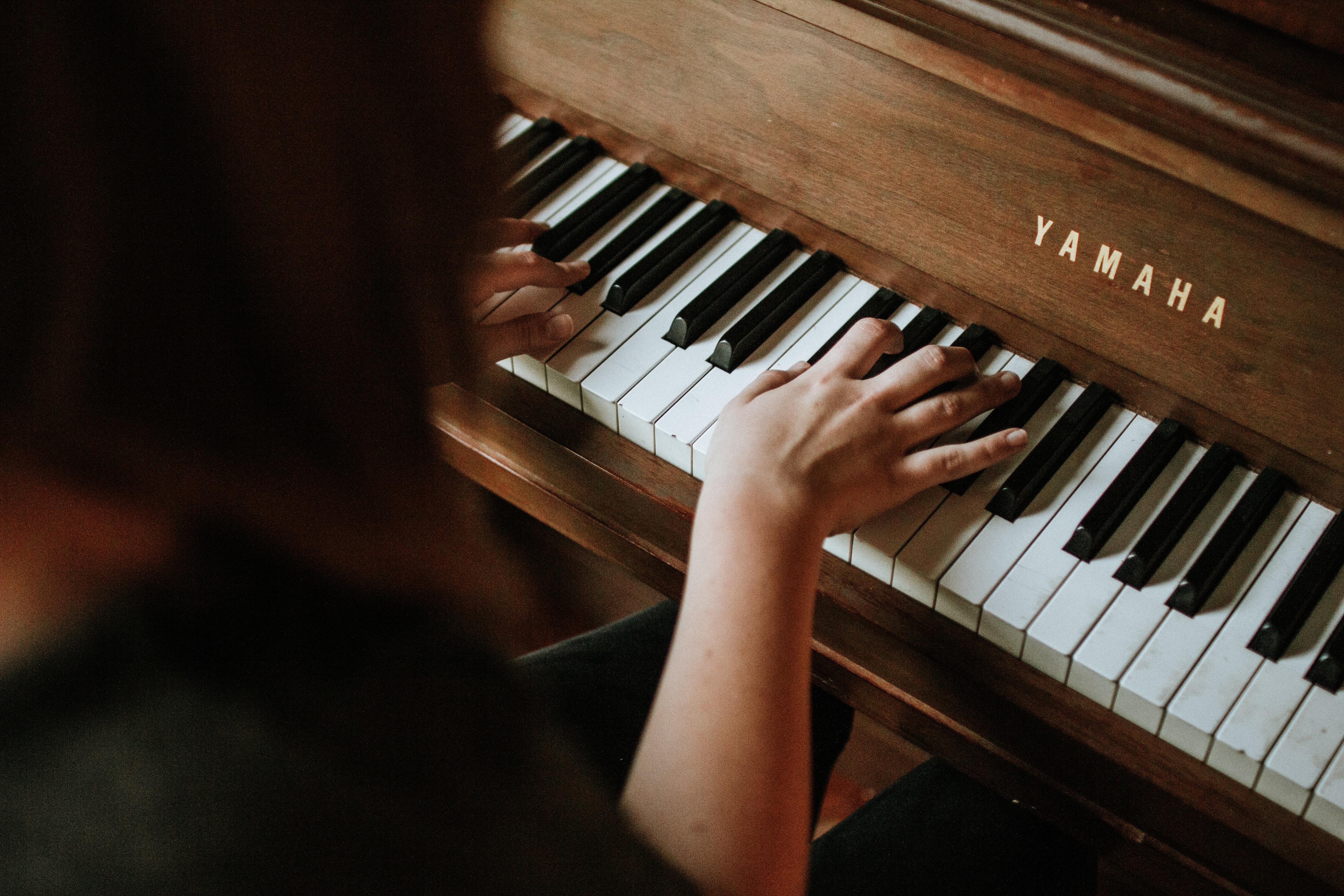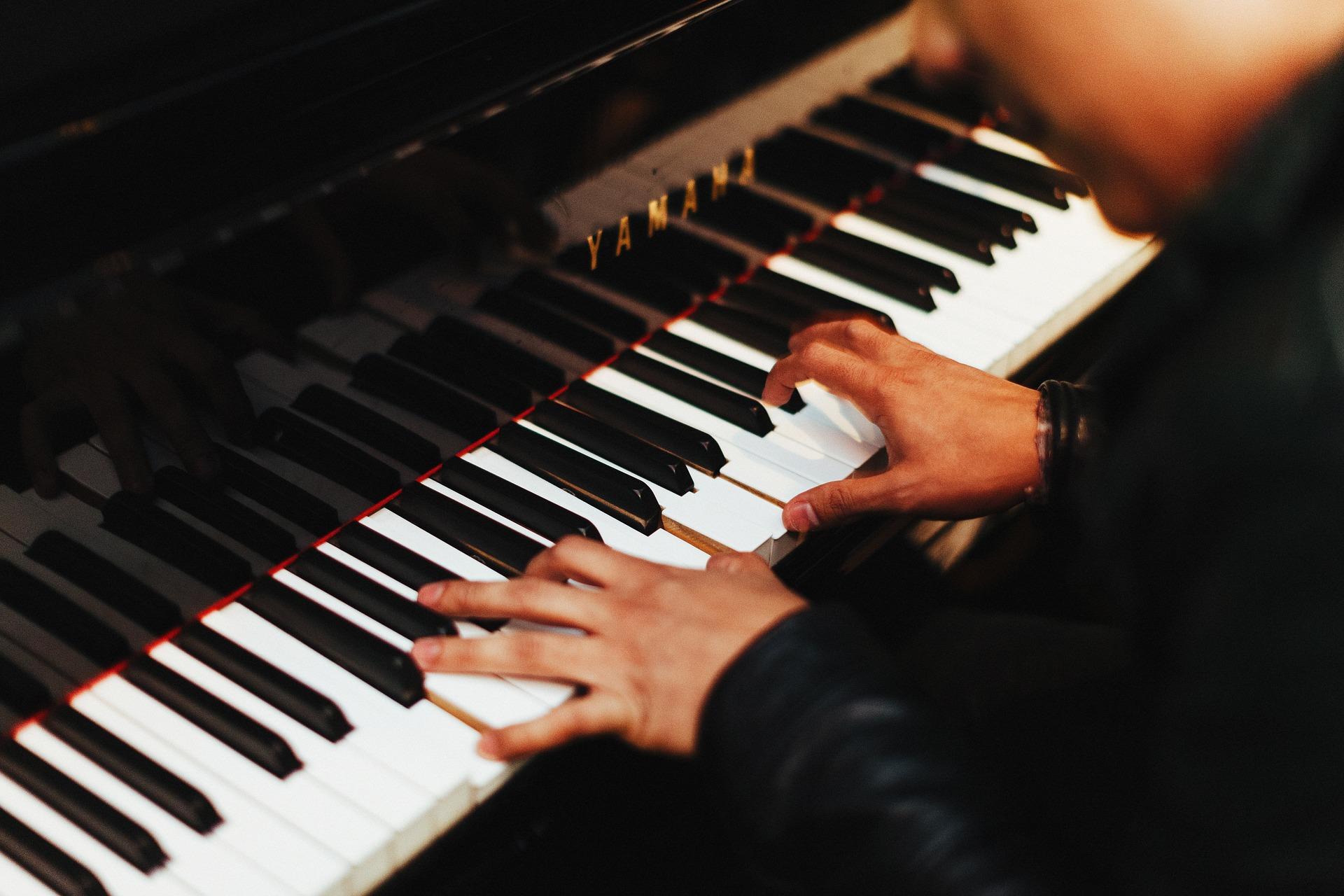Maybe you've wanted to learn the piano for ages or maybe you've decided it'd be a nice New Year's resolution. Either way, it's a great idea! Now you're probably wondering exactly how you can go about it.
Here's our quick guide to the different ways you could choose to learn how to play the piano.

How Many Ways Can You Learn to Play the Piano?
There are as many ways to learn the piano as there are pianists since the instrument's been popular for over 300 years, but for the sake of simplicity, we've outlined three main ways to learn how to play the piano.
We've classified these ways according to who's teaching you and while every method can change with each student, there are a few approaches that will be more common with some than with others.
Our three main ways to learn the piano are through lessons with a teacher, private tutoring with a tutor, or by teaching yourself. There are pros and cons to each so let's see what they are.
Learning with Piano Lessons
Naturally, you can take a piano lesson on your own or with a private tutor, but when we talk about piano lessons here, we're talking about traditional piano lessons taken with a piano teacher in a music school, for example.
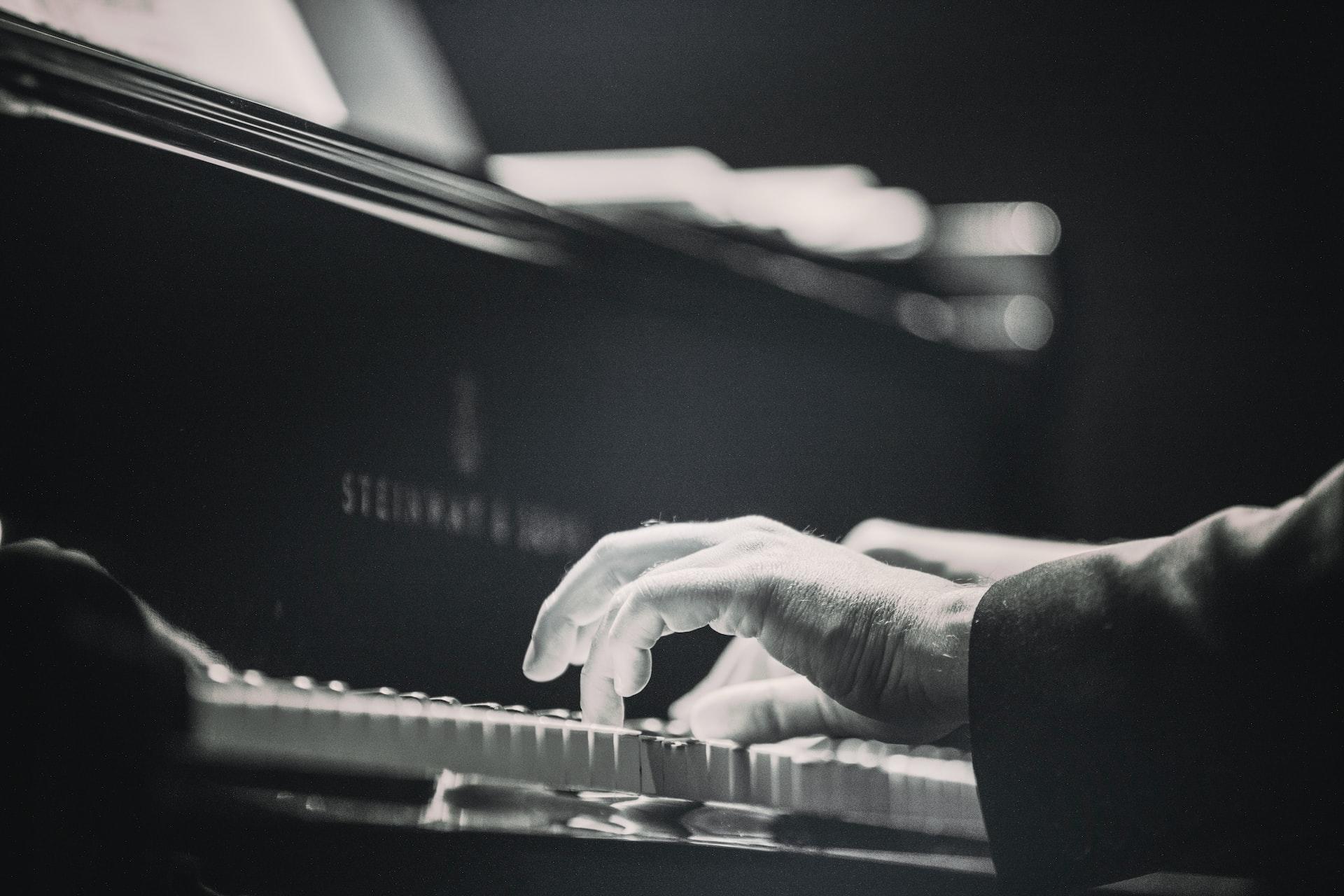
With this approach, the curriculum or syllabus is generally more rigid and students will learn to play the piano and take examinations to accredit their level. These examinations will likely be from the Australian Music Examinations Board (AMEB) and while there's no reason that a student working with a private tutor or teaching themselves couldn't take these exams, it's far more likely that this will be one of the key goals to learning piano with a music teacher.
These kinds of lessons differ from private tutoring and teaching yourself because they usually take place in a dedicated space for piano lessons such as in a music school, educational establishment, etc. This also means that the lessons will likely take place on a regular schedule.
We could probably refer to these types of piano lessons as formal piano lessons due to the rigid structure of the teaching, the regularity with which they'll take place, and the location of the lessons.
The Advantages of Formal Piano Lessons
For any aspiring pianist wanting to be "classically trained", these are the types of lessons that they'll want. The lessons will probably be accompanied by a lot of music theory, which can be incredibly important when it comes to playing the piano, especially if you want to become a concert pianist, for example.
Naturally, they come with the advantage of guiding students towards proper musical accreditation and examinations, which is great for those wanting to play the piano professionally or just those wanting to put their piano playing on their CV or resume.
The Disadvantages of Formal Piano Lessons
While some would consider this kind of education the very best out there, it's not without its disadvantages. The first key disadvantage is that piano lessons, especially in the very best schools, conservatoriums, or academic institutions, can be quite expensive.
These aren't the types of lessons you can get on a budget and are generally for those looking to start piano at a very young age and continue studying it until they have an undergraduate or postgraduate degree in performing arts.
As they say, you get what you pay for and the premium cost of a classical music education will get you some of the best piano training out there. Similarly, if you're not interested in becoming a professional or a concert pianist, these types of lessons are probably too formal, too strict, and too dry. For anyone with a passing or casual interest in playing the piano, you won't need this kind of education.
Learning with Private Tutoring
One of the more interesting and flexible options for learning to play the piano is private tutoring. While formal lessons offer the best training available and can be quite unwavering in terms of their delivery, cost, and expectations, private tutoring is an excellent option for aspiring pianists across the board.
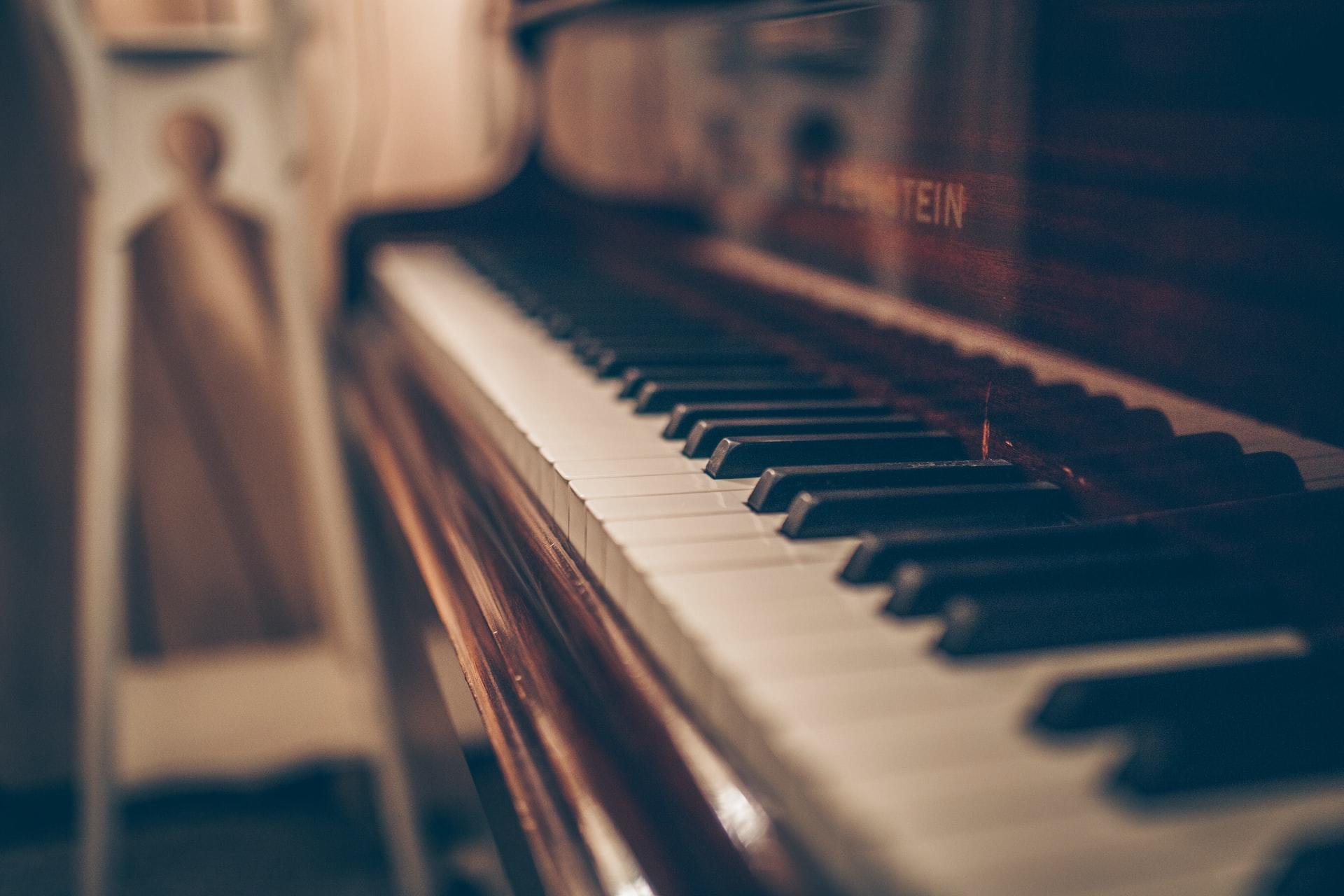
Private tutoring can take place at your home if you have a piano or keyboard, or at the tutor's home. The key to private tutoring is that it can be tailored to the student. The time and place can always be negotiated as can the type of lesson, what you want to learn, and the learning approaches used.
The very best tutors will do their utmost to provide their students with a learning experience that's adapted to them. If there's a certain genre of music that you'd like to play, they can help you with that. If you don't really have much interest in music theory, they'll only teach you the essential parts or skip it altogether if they can.
Admittedly, completely skipping music theory might hold you back as a pianist, but if you really don't want to do it, you don't have to.
Superprof can help you find local piano tutors with the click of a button. If you live in Sydney, for example, is as simple as typing on your browser "piano lessons sydney" followed by Superprof, and you'll have access to a long catalogue of piano teachers in the city.
The Advantages of Private Tutoring
With private tutoring, you're the boss. Rather than having to adapt to the syllabus, the syllabus can adapt to you.
In terms of cost, there are plenty of ways to get affordable tutoring. For one, you can shop around. If you're an absolute beginner, you probably won't need to most experienced or expensive tutor and can always work with tutors that are within your budget.
You can also save money by opting for online tutoring. Armed with a webcam and a decent internet connection, you can learn from private tutors all over the world and as they don't have to travel to you, they don't have as many travel expenses to pass onto their students.
Find a qualified and convenient piano teacher with piano lessons online on Superprof.
The Disadvantages of Private Tutoring
There are lots of good private tutors out there, that's for sure, but you also need to be meticulous when choosing your private tutor.
It's recommended that you check any potential tutor's credentials, read reviews left by other students, and go with another tutor if they don't work out or seem unprofessional.
Certain tutoring platforms and sites work tirelessly to check tutors and their credentials, but even then, a popular tutor mightn't be right for you. Fortunately, you can always change tutors whenever you like.
Teaching Yourself
One of the most difficult ways to learn piano is by teaching yourself. This is an approach that requires resourcefulness, determination, and a lot of patience.
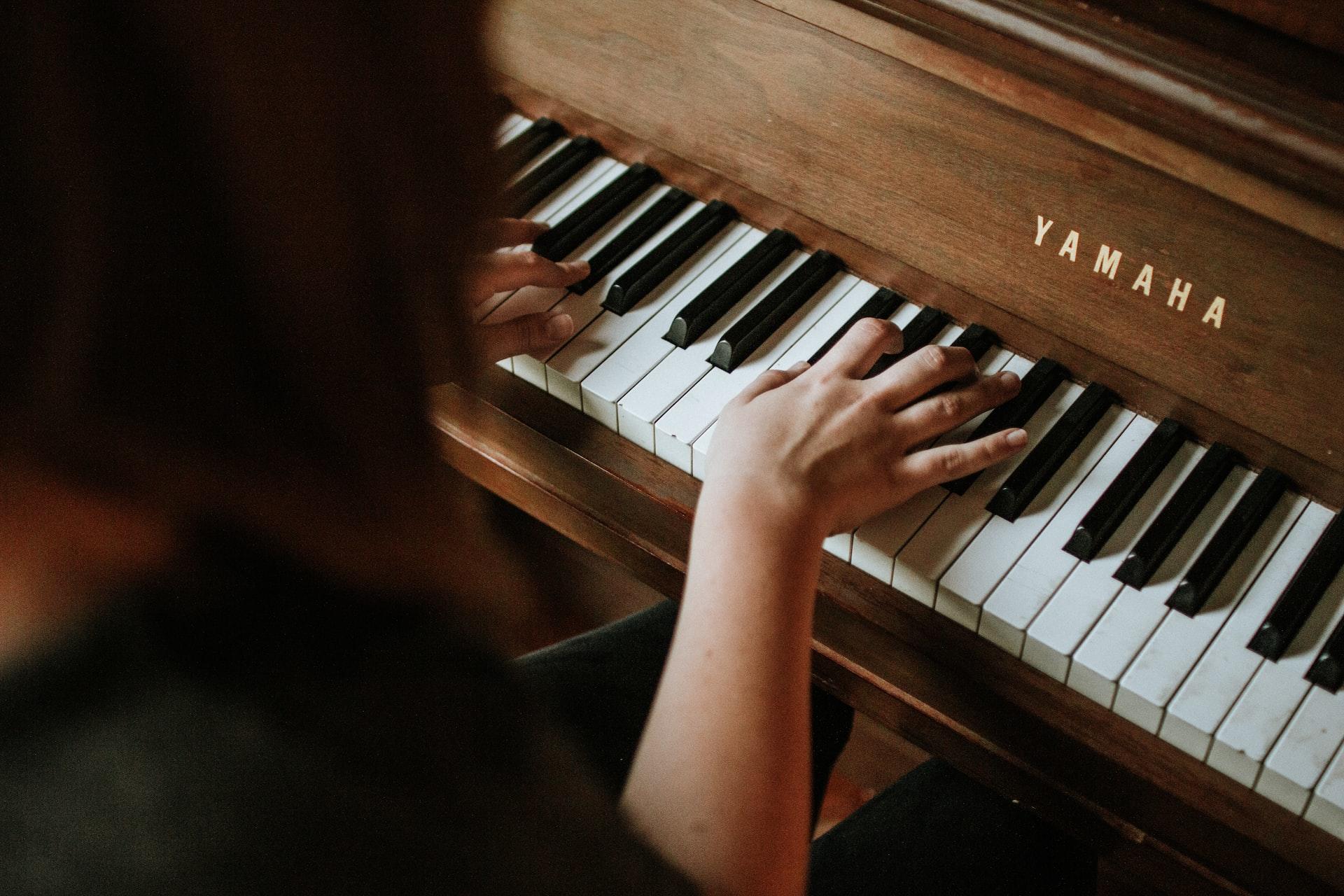
If you don't know where to begin, there are fortunately lots of resources out there for you. With the other approaches we've listed, you can just ask your teacher or tutor, but when you're teaching yourself, you have to do everything for yourself.
Teaching Yourself through Music Theory
You can parallel a formal piano education by picking up books and guides (and even visiting websites) on music theory and reading up on everything you need to know and doing all the practice exercises you'd do if you were learning from a piano teacher.
Music theory can be really dry and quite boring at times so remember that this approach isn't all fun and games. If you have the determination for it, though, it could be a way to learn how to play the piano like some of the best theories out there
Teaching Yourself Piano without Music Theory
You can also teach yourself how to play the piano by skipping a lot of the music theory. You can learn to play your songs just by learning and memorising which keys to press at the right time. There are plenty of videos online, especially on YouTube, where you can follow along and play a song as if it were karaoke, with the keys you need to press lighting up on the video.
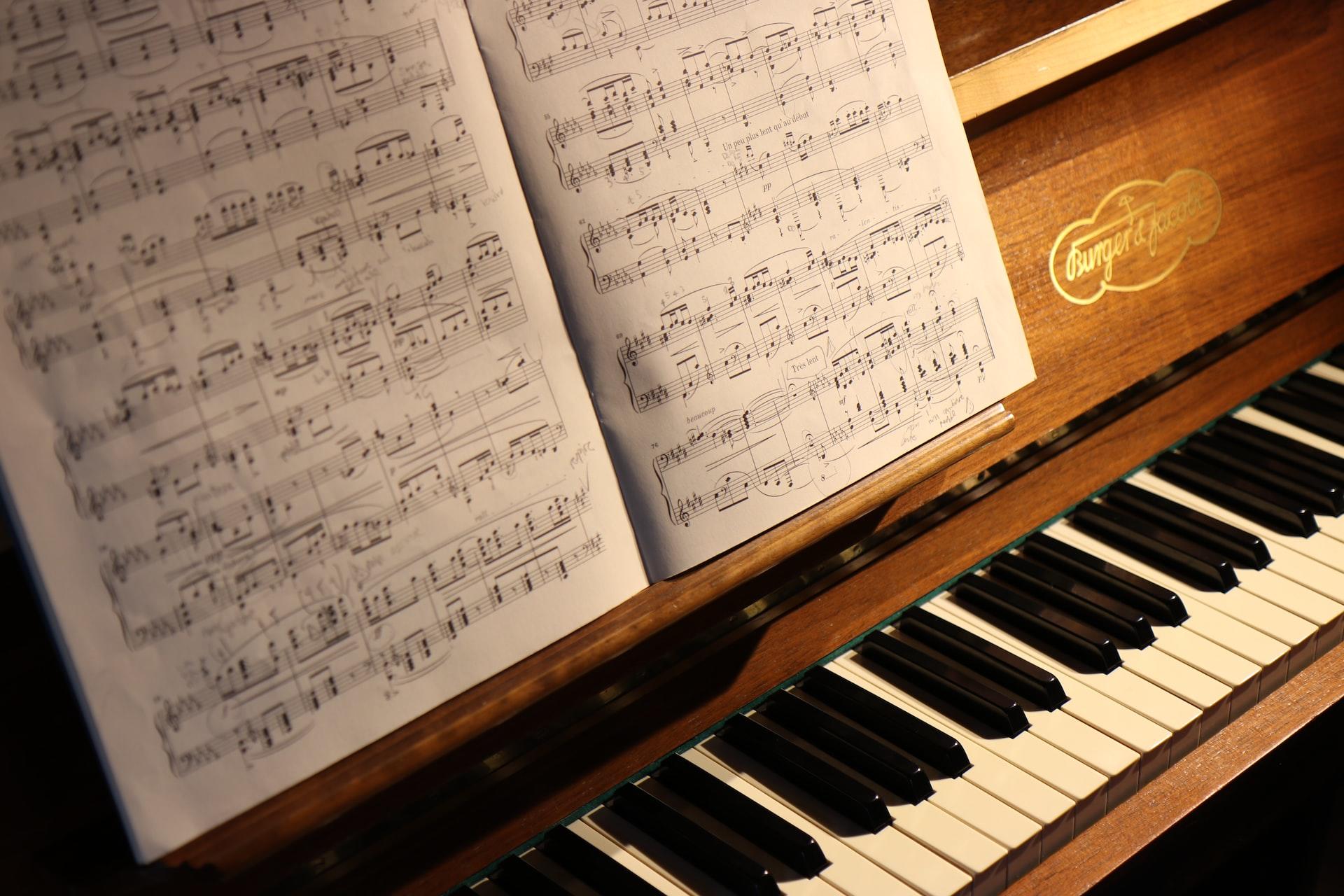
Once you learn the names of the keys, you can also find piano tabs, which basically list which key or chord to play for a given melody.
This approach has its limitations, but if you just want to play your favourite songs, it's a cheap and effective way to go about it.
The Advantages of Teaching Yourself How to Play the Piano
The key advantage of teaching yourself how to play the piano is that it's almost free (other than the cost of a piano or keyboard some of the premium resources). You can spend as little or as much as you want to and if you can't afford expensive resources, there are resources out there.
You can also learn however you want. While a tutor will be fairly accommodating, they'll still sometimes have to choose a certain way to teach you. When you're teaching yourself, you can learn however you like, albeit with varying degrees of success.
The Disadvantages of Teaching Yourself How to Play the Piano
The worst thing about teaching yourself to play the piano is that you won't get any feedback. Self-taught pianists may pick up bad habits early on that later limit their piano-playing potential. You can correct these bad habits with a teacher or tutor, but it's easier to not pick them up in the first place.
Self-taught pianists are also more likely to give up learning how to play the piano. Without the financial investment or somebody else to hold them accountable for practising, studying, or just playing the piano, it can be very easy for them to give up even though there are plenty of reasons to play the piano.
Now it's time to choose the approach that's best for you.
Summarise with AI:

